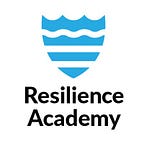Resilience Academy in practice
A series of blog posts on the impacts of new tools, knowledge and skills to build resilient cities
By the Resilience Academy Team: Alexa Haden (World Bank), Hessel Winsemius (Deltares), Louise Petersson (World Bank), Niina Käyhkö (UTU), Msilikale Msilanga (UTU), Mercy Mbise (UDSM), Zakaria Ngereja (ARU), Ernest Mauya (SUA), Makame Makame (SUZA), Christopher William (UDSM), Larissa Duma (World Bank), Edward Anderson (World Bank)
Image materials are from @fundi_films credits: Chris Morgan / World Bank
The Tanzania Resilience Academy trains young people with tools, knowledge and skills to address the world’s most pressing urban challenges and to discover solutions for resilient urban development. A strong focus lies on methods and practices that rely on open, affordable and locally adaptable tools and technologies, that allow involving local participation in mapping, monitoring, and better understanding the urban environment, identifying risks and opportunities, reducing risk, and improving managing and responding to emergencies. In the coming period, we will report on new exciting events, datasets, research and innovations in this blog page. Please stay posted!
The Resilience Academy builds capacity through several activities:
- New data is made openly accessible through the Climate Risk Database, a geonode platform
- E-learning materials are prepared and made openly available through the Digicampus learning platform
- A large Industrial Placement program is carried out every year, to have students learn new tools and skills in practice
- Through a new Research and Innovations programme, new tools and innovations are investigated, adapted to local conditions, and piloted. When these prove successful, these innovations flow into the three other activities through publishing of new datasets, new course developments, and new skills to be trained in practice. In the coming months, we will publish a number of blogs on the activities, outcomes and impacts of the Resilience Academy in this medium page.
To exemplify how we work and what impacts it leads to, we will cover the following story types in this blog series:
- Impact stories: what does Resilience Academy lead to in terms of innovations, new jobs, new services, better decision making in Tanzania. Stories of users of data, users of services to gather data locally with local devices, tools and open knowledge from NGOs, governments, international consultants, and academia.
- Data stories: what new datasets did we develop through student projects, industrial placements, innovation pilots? How were these developed and what potential use cases do they bring?
- Events stories: what happens in our industrial placement program, webinars, module training, what are the experiences gained from these events by students, practitioners and other stakeholders?
- Research and Innovation stories: what exciting, affordable, scalable and locally deployable new innovations are we working on? We will cover new tools to survey, monitor or harvest data, innovations in modelling and understanding urban resilience, and research in applications of use cases.
The expected first three blogs will cover the following topics:
Event story: the importance of Industrial Placements for skill development and jobs. In this story we will show experiences of students in gaining new mapping skills and how this helps shaping their opportunities for their future career.
Research and Innovation stories: Turning a simple camera into a flood warning service, a report on a MSc study that investigates how simple CCTV cameras can be used as a powerful river flow monitoring instrument.
Impact story: Using new low-cost GPS equipment to gather river profiles for flood modeling at unprecedented accuracy. We demonstrate that research in low-cost GPS surveying, led to a new surveying service within about a year’s time.
Please stay tuned for our stories, please like, and spread the word!
